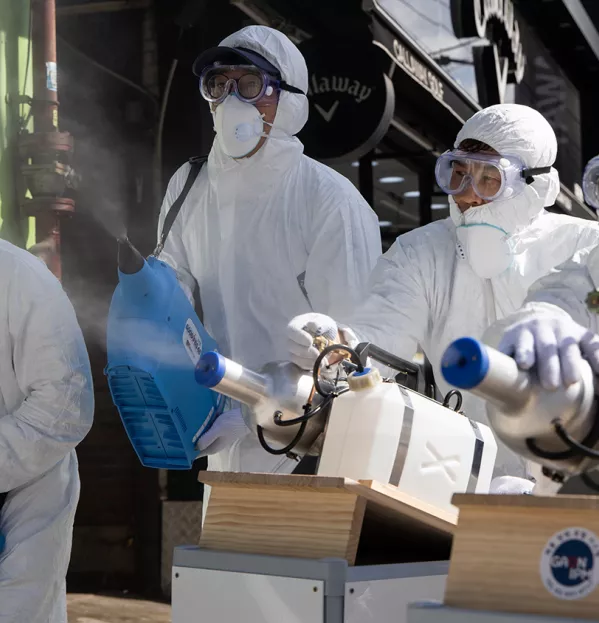Is coronavirus like the plague?”
I’m sure I’m not the only adult who has fielded this question in the past few weeks, and it’s no wonder that little ears are pricking up - rumours about the coronavirus are spreading even quicker than it is.
Earlier this week, on my daily walk to school with four children, we tested one: they had heard that shops had run out of hand gel because so many people were panic buying that it was impossible to find anywhere. But we took a little detour into the local Wilko and found several dozen little bottles of the stuff on the shelves.
Now would be a particularly good time for schools to demonstrate that they are bastions of reason and reliable sources of measured, fact-based advice - because playground gossip certainly is not.
One mum told me about her eight-year-old son’s swelling panic as other children thrust out their phones to share updates from their primary source of news: TikTok. This hugely popular social media platform - better known for viral videos of people dancing goofily in their bedroom - was updating these children on the rising death toll in catastrophising tones, shorn of any context. Coronavirus, the way these children talked about it as they huddled around the playground swings, sounded like an unstoppable bogeyman who could be lurking around any corner.
Panicky talk about coronavirus - at times fuelled by mainstream news coverage - is making a lot of children anxious. Parents with children of school age may be reminded of the “Momo challenge” in 2018, and the fear that coursed through young minds even after they were told it was a hoax: for a time, the vividness of the apparent threat trumped the actual facts behind it.
Coronavirus, of course, is different in presenting a genuine threat to physical health, but schools can help pupils get a sense of proportion. Classes could, for example, compare the blanket coverage of coronavirus with that given to far bigger killers, such as road crashes (around 1.35 million annual deaths globally, according to the World Health Organization) and air pollution (7 million estimated annual deaths, according to the WHO). Why don’t they get the same attention, when at the time of writing coronavirus has been responsible for around 3,000 deaths?
Partly, it’s because the spread of coronavirus taps into a deep, human desire for narrative. Road deaths - whatever the reality of systemic faults that may be responsible - come across as tragic, isolated incidents, while air pollution is a (literally) slow-burning problem that affects us all, whose impact on individuals is hard to ascertain.
Then compare the colourful unfolding tale of the rapid spread of coronavirus: people walking around in masks, holidaymakers quarantined on cruise ships, a faceless threat springing from a far-off land, world leaders making sombre pronouncements - it has the hallmarks of a Hollywood disaster movie, or a post-apocalyptic computer game in which zombies stalk our streets.
In a piece for Tes last month (“In Milan, we should be opening, not closing, schools” ), Chris Greenhalgh, principal and CEO of the British School of Milan, looked at the Italian towns in lockdown and pondered why there wasn’t the same sense of urgency to save lives by banning smoking, creating more bike lanes or implementing anti-pollution measures.
He argued that schools shouldn’t be closing during the outbreak, and that they should be “teaching children the difference between facts and opinion, reason and emotion; and educating students about what really matters when it comes to a nation’s health”.
Coronavirus is a colourful, unusual tale that is easy to connect with emotionally. Schools, however, are places for pragmatic, sensible advice and proportionate responses. They can show students that our reaction to coronavirus should be based on what it actually entails - not how good a story it is.
@Henry_Hepburn
This article originally appeared in the 6 March 2020 issue under the headline “Don’t panic! Schools can offer a vaccine for viral scaremongering”
